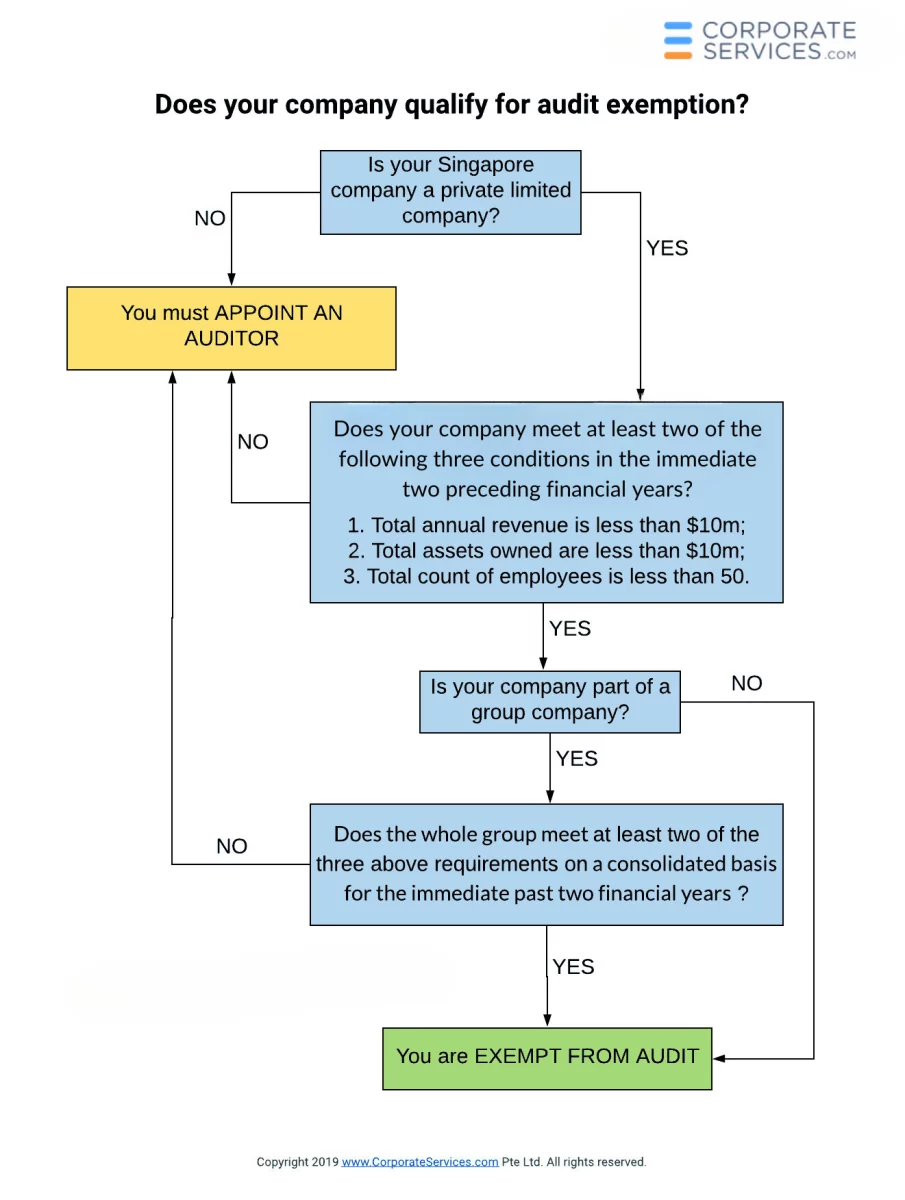Audit Exemption for Small Companies in Singapore
A private limited company is the most suitable form of business structure in Singapore. It provides benefits such as limited liability, tax savings, and simple compliance obligations. The Companies Act in Singapore has recently introduced the concept of “small company” that exempts private limited companies that fulfill certain criteria from the requirement of the annual audit. This helps the company reduce its compliance costs as well as its overall regulatory burden.
The small company concept is applicable to existing as well as newly registered private limited companies in Singapore. This article will explain the small company audit exemption concept and the qualifying conditions on the basis of which a company can be exempt from the need to perform an annual audit of its accounts.
Topics To Be Discussed
Audit Exemption Criteria for Companies in Singapore
The Singapore Companies Act states that every company must get its financial statements and accounting records audited by an auditor on an annual basis unless the company meets the Singapore audit exemption requirement.
The Companies Act was amended in 2014 to update the audit exemption criteria for companies and introduced the concept of a “small company”. A company that qualifies as a small company is not required to appoint an auditor and have its accounts audited. The Amended Act was made effective starting from July 1, 2015.
What Is the Definition of Small Company in Singapore?
A company is considered to be a small company in Singapore if it fulfils at least two out of the following three conditions for the past two consecutive financial years:
- The total annual revenue of the company must not exceed S$10 million;
- The total assets of the company for the financial year end must not exceed S$10 million;
- The number of full-time employees at the end of the financial year must not exceed 50.
Besides private companies, group companies (holding and subsidiary companies) can also avail the Singapore audit exemption if they qualify as a small group per the criteria described below.
Audit Exemption Requirements for Holding and Subsidiary Companies in Singapore (Group Companies)
A group company in Singapore is defined as a holding company and its subsidiaries that together form a group due to a common source of control.
A group company will be exempt from the annual audit of its accounts if the holding and all subsidiary companies individually:
- Fulfil at least 2 of the small company audit exemption qualifying conditions in the immediate two preceding financial years and
- Belong to a “small group”
How to Qualify as a "Small Group Company" in Singapore?
To qualify as a “small group”, the group (comprising of all the companies) must fulfil two out of the following three conditions in the immediate two preceding financial years:
- The consolidated revenue must not exceed S$ 10 million;
- The consolidated total assets must not exceed S$ 10 million;
- The total number of employees of the group must not exceed 50.
In other words, this means that to qualify for the audit exemption criteria, the individual subsidiary companies as well as the holding company, as a group, must fulfil the eligibility criteria of a small company.
Singapore Private Limited Company Audit Exemption Diagram

Change in Company Audit Status
Once a company acquires the “small company” status, it continues to enjoy the audit exemption benefit unless the company is disqualified.
How Can a Singapore Company Lose Its 'Small Company' Status?
Disqualification of a Singapore company occurs if the company:
- Ceases to operate as a private company in the financial year or
- Does not satisfy the “small company” qualifying conditions for the two immediately preceding financial years.
Prior Criteria for Audit Exemption in Singapore
Prior to the Amendment Act 2014, an Exempt Private Company with an annual turnover less than or equal to S$ 5 Million was exempt from having its accounts audited. An Exempt Private Company is a company that has less than 20 shareholders and no corporate shareholders.
Pursuant to the 2014 Amendment, the criteria has changed. Now, any company defined as a “small company” will be eligible for audit exemption.
If my company is exempt from audit, am I still required to prepare and file my annual accounts?
My company qualifies as a small company and therefore exempt from audit requirement. Can you handle the bookkeeping and tax filing for my business?
We offer the full spectrum of bookkeeping and accounting services in Singapore regardless if your company is exempt from audit or not. When an audit is required, we will liaise with the appointed audit firm to get the audit completed in an efficient and stress-free manner for you. Contact us today if you need help or need to register a company in Singapore.
Considering Singapore?
Experienced team. Affordable cost. Online platform.
Summary on Audit Exemption for Companies in Singapore
Need Assistance?
More Reading
Our Guides
Our Services
Client Reviews





